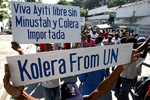Jane Goodall: Primatologist, Activist
Interview of Jane Goodall with Bret Love, Green Global Travel | Trailer for “Jane’s Journey,” YouTube. Jane Goodall retired from her studies as a primatologist 20 years ago and has since worked as a full-time activist. Her Institute’s TACARE microlending program promotes environmentally sustainable projects. Her Roots and Shoots program motivates children.
Continue reading →











